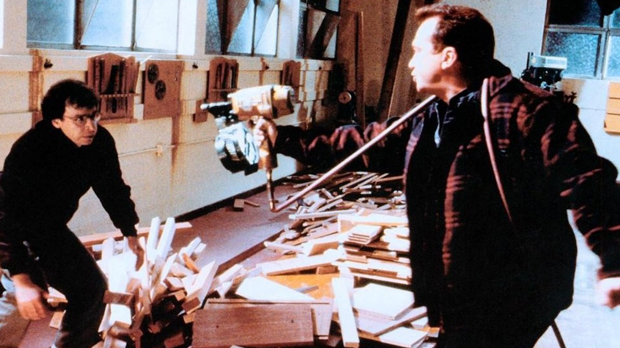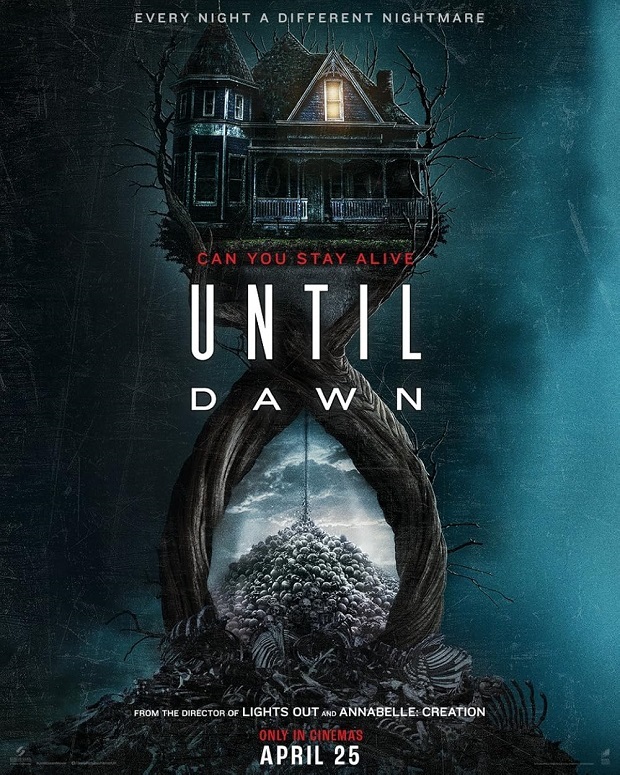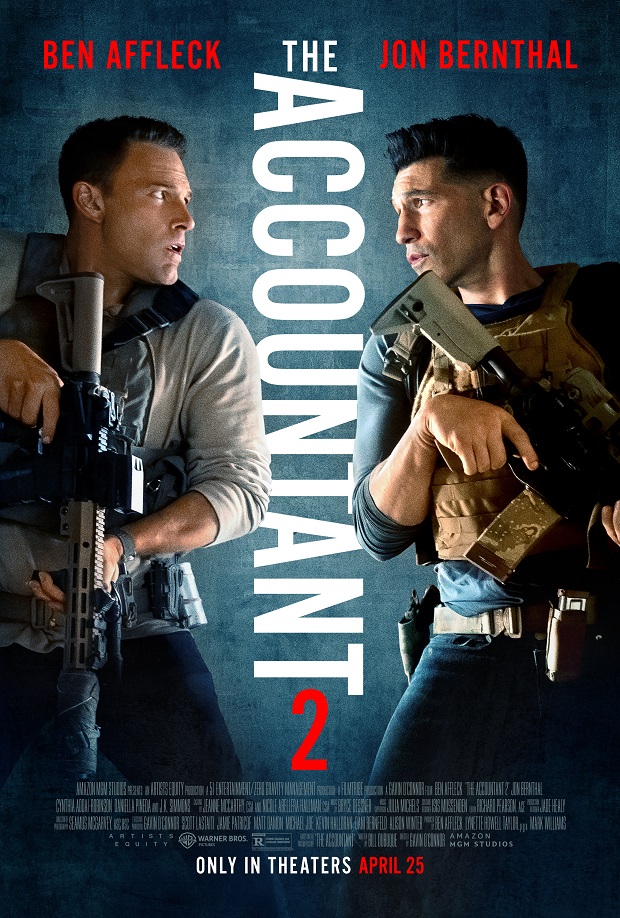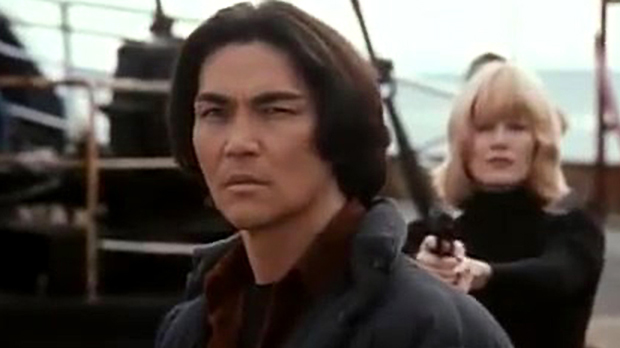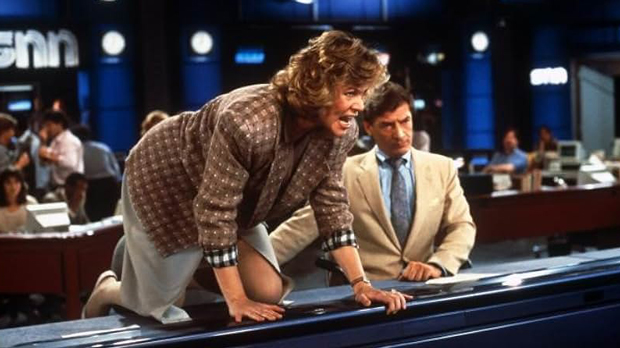 Big Bully (1996) Warner Bros./Comedy-Drama RT: 90 minutes Rated PG (language, some crude humor, bullying, comic violence and mean-spirited pranks) Director: Steve Miner Screenplay: Mark Steven Johnson Music: David Newman Cinematography: Daryn Okada Release date: January 26, 1996 (US) Cast: Rick Moranis, Tom Arnold, Julianne Phillips, Carol Kane, Jeffrey Tambor, Faith Prince, Curtis Armstrong, Don Knotts, Blake Bashoff, Cody McMains, Tony Pierce, Harry Waters Jr., Stuart Pankin, Justin Jon Ross, Michael Zwiener, Norma MacMillan, Bill Dow, Susan Bain. Box Office: $2M (US)
Big Bully (1996) Warner Bros./Comedy-Drama RT: 90 minutes Rated PG (language, some crude humor, bullying, comic violence and mean-spirited pranks) Director: Steve Miner Screenplay: Mark Steven Johnson Music: David Newman Cinematography: Daryn Okada Release date: January 26, 1996 (US) Cast: Rick Moranis, Tom Arnold, Julianne Phillips, Carol Kane, Jeffrey Tambor, Faith Prince, Curtis Armstrong, Don Knotts, Blake Bashoff, Cody McMains, Tony Pierce, Harry Waters Jr., Stuart Pankin, Justin Jon Ross, Michael Zwiener, Norma MacMillan, Bill Dow, Susan Bain. Box Office: $2M (US)
Rating: ***
Most, if not all, of us had a bully growing up. You know, the bigger kid that made your life a living hell by calling you names, chasing you home from school, breaking your favorite toys and pounding you- all for no good reason. Now what would happen if you ran into your childhood bully as an adult? The most likely scenario would be an awkward exchange of pleasantries followed by a few minutes of attempted casual conversation. That is, provided both parties have become mature adults.
That label does not apply to the main characters in Big Bully, an uneven blend of comedy and drama in which the bully and his victim pick up where they left off some 25 years earlier. I hated it the first time I saw it, but I knew it would be bad going in. All the signs of a dud were there. It was released in January, the studio declined to screen it in advance and the theater was nearly empty at the Saturday afternoon matinee I attended. The finished product justified all of it. I thought it was stupid, unfunny and very poorly made. By all means, I never should have bothered with Big Bully ever again. But lately, I’ve begun to notice that I have this strange fascination with bad comedies. It explains why I decided to revisit such titles as Pure Luck, Father’s Day and now, Big Bully.
Our story opens in 1970 with little Davey Leary living in constant fear of Roscoe “Fang” Bigger. He’s your typical schoolyard bully- fat, stupid, mean and sadistic. Davey gets his revenge by turning Fang in to the principal (Knotts, The Apple Dumpling Gang) for stealing a moon rock on display at the school. He witnesses Fang being arrested and put in the back of a police car as he and his family move out of town. 25 years later, David (Moranis, Little Shop of Horrors), a not-very-successful writer, is divorced and raising his preteen son Ben (Philly native Bashoff) by himself. He’s invited to return to his old middle school in Hastings, Minnesota to teach a creative writing course. He gladly accepts the gig much to the resentment of his son. Not too much has changed since David left. His old friends are still around as is the girl, Victoria (Phillips, Skin Deep), he had a crush on. The principal looks exactly the same. The school librarian even remembers that he still hasn’t returned “Green Eggs and Ham”. Those overdue charges are a real bitch.
Ben wastes no time in getting into trouble; David is called to the principal’s office after his son bullies a much smaller kid, Kirby (McMains, Not Another Teen Movie). It turns out that Kirby’s father (Arnold, True Lies), the shop teacher, is David’s old childhood nemesis Fang. Now going by Ross, he’s very different from how David remembers him. He’s become meek and passive. His children (with the exception of Kirby) behave like little savages, his students don’t respect him at all and his wife Faith (Kane, The Heartbreak Kid) berates and emasculates him on a non-stop basis. What happened? I’ll get to that in a moment. When Ross realizes who the new teacher really is, he starts picking on him again playing mean (and painful) pranks and making him look like a paranoid ass. In the process, Ross’ self-esteem improves dramatically and he starts standing up for himself. Meanwhile, David realizes that he’s still that same scared little boy and decides to confront his bully which leads to a showdown between the two.
Getting back to something I mentioned earlier, there’s a reason behind Ross’ change in demeanor that lends a note of drama to the otherwise silly proceedings. It seems that his life fell apart after he got arrested as a boy. After a three-year stay in juvenile hall, he comes home to find that his parents skipped town and abandoned him. He spent the rest of his childhood in an orphanage. The traumas he experienced as a child made a real mess of him. He blames it all on David who, he finds out later, is the one that turned him in. So we have context for Ross’ recent bullying campaign against David. It’s an interesting idea, but does it really belong in this movie? Big Bully was marketed as a silly slapstick comedy which, to a large extent, it is. It’s filled with broad physical humor and features two grown men acting like children. Some of it amusing, much of it is just dumb. But then director Steve Miner attempts to add gravitas to the proceedings with mention of the horrific things that Ross saw at reform school, an institution that ultimately got shut down because of what was happening there. It’s off-putting to say the least. It makes the movie kind of weird.
In terms of filmmaking, Big Bully is a bust. It’s poorly made and badly written by Mark Steven Johnson who penned the scripts for the Grumpy Old Men movies and would go on to direct Daredevil (2003) and Ghost Rider (2007). Characters- like the perennially freaked-out teacher played by Curtis Armstrong (Revenge of the Nerds) – are introduced to no avail. Phillips disappears for a large portion of the movie. The romance between her character and David is not developed at all. Knotts’ is criminally underused as the always-annoyed principal, but a conversation with the mother of young star Bashoff at another screening shed some light on that. The aging star was in poor health at the time, wearing an oxygen mask when he wasn’t on-camera. This also explains why we see him sitting at his desk most of the time. Sick or not, he’s still funny.
The climactic sequence of Big Bully is fascinating in the way it recalls another one of Miner’s movies, Friday the 13th Part 2 (1981). It’s an extended chase in which David tries to outrun Ross who wants to kill him at this point. It starts in the schoolyard, then inside the school where they do battle in the wood shop and finally through the woods. It’s just like the end of the slasher movie with Jason chasing lone survivor Amy Steel all over Crystal Lake.
Big Bully, as a whole, is decidedly odd with its uneven tone and disparity of plot elements. The lead actors turn in decent performances. Well, as good as can be expected from a movie like this. Moranis has played this type of character several times and appears somewhat bored. Interestingly enough, it’s his last appearance in a feature film as he retired shortly afterwards. Arnold does a little better, but only because he looks like he’s having some fun with it.
As for the rest of the cast, it’s hit or miss, mostly the latter. But that’s mainly because they’re underused; it goes back to what I said about characters introduced only to be dropped either for long periods of time or just altogether. Jeffrey Tambor (Arrested Development) shows up early as a very talkative neighbor. The makers do nothing all that much with his character. Bashoff and McMains do well in their roles. It should come as no surprise that they’re the ones that will ultimately set a good example for their battling dads. What is it that they say about a child leading everybody?
In the abstract, Big Bully is a bad movie, but one I find perversely fascinating for all it does wrong. It has a few amusing moments and, I suppose, positive messages about standing up for yourself and bullies being people too. I guess the makers felt that kids would respond better if such messages were delivered in the form of a Home Alone-type slapstick comedy which it really isn’t. Maybe it’s good that the studio didn’t screen it beforehand.
